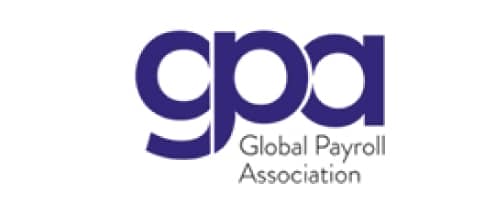
German Payroll and
Hiring Employees in Germany
The International Payroll & HR Service Provider
That Speaks Your Language
At IRIS Global Workforce Management, we can simplify German payroll and the processes around hiring employees in Germany. As a trusted and reliable global payroll and HR specialist, including 88 in-country teams, we have the knowledge to ensure your employees overseas get paid on time, every time.
Navigating the challenges associated with global payroll and HR in Germany can seem difficult without expert guidance. As compliance is a top priority for many businesses, we will support you throughout a global expansion. With different laws, cultures and regulations, it can feel overwhelming to stay on top of it all. Fortunately, our expert teams are here to support your global business. We offer:
Looking for Payroll and HR Services?
German Payroll & Tax
We remove the complications of international payroll and tax by managing everything, including – pay to benefits, and more. Through our payroll and tax support, your growing workforce can ensure accurate pay days, on-time, every time.
Hiring Employees in Germany
Our HR services are trusted by companies, where we support your business when it comes to the legislation and laws around hiring and managing employees in Germany.
Employment Law Compliance in Germany
Partner with us to seamlessly and compliantly onboard your organization’s new hires. As an in-country specialist, we will cover contracts, policies, handbooks and more.
Global Payments Services
We are able to provide compliant, globally-focussed payment services for all kinds of industries. This will make your cross-border transfers cost-effective.
Jump to section
Location Data
- Name
Germany
- Region
- Europe (Central Europe)
- Population
- 83240525
- Calling Code
- 49
- Capital
- Berlin
- Timezone(s)
- UTC+01:00
- Timezone in Capital
- (europe/berlin) 4:38 PM
- Currency
- Euro (EUR)
$1 = €0.92 - Main Language
- German(Deutsch)
- Other Business Languages
- German, English
- Tax Year Start
- 1st January
- Tax Year Start
- 31st December
Details correct at time of publication. You should not rely on these details without first seeking professional international advice.
A trusted advisor for global expansion
We support businesses in 135 countries worldwide to reach their expansion goals.
Doing Business in Germany
If you’re thinking of expanding your business to Germany, you’re in good company – 22,000 foreign enterprises have established businesses there. As Europe’s largest national economy and one of Europe’s most cost-effective production locations, Germany presents endless opportunities for growth. Among the country’s main exports are cars and vehicle parts, medical goods and aircraft machinery.
Part of the reason for Germany’s historic economic success is its proximity to other wealthy European nations. The country is bordered by the Netherlands, Belgium, Luxembourg, France, Switzerland, Austria, Czechia, Poland and Denmark, revealing its central position within the continent. Germany also has a famously reliable public transport network, and 31 airports. The largest airport, Frankfurt International Airport, offers flights to more than 300 destinations in almost 100 countries.
Business owners who feel that expansion into Germany is the right move for their company will need to ensure the business is payroll and HR compliant in Germany. To achieve this, you need an international employment specialist by your side. That’s where IRIS’s HR and payroll services come in.
Working & Living in Germany
For information on what it’s like to work and live in Germany, check out our Living & Working in Germany Guide.

Employer Must-Dos
In Germany, the following reports must be submitted to strict deadlines:
- Social Security Statements (Beitragsnachweise)
- Withholding Tax Statements (Lohnsteueranmeldung)
- Accident Insurance (Berufsgenossenschaftsmeldung)
Payroll Taxes in Germany
What tax considerations are there?
In Germany, the tax system can be quite overwhelming when it comes to maintaining compliance.
Personal income tax (PIT)
In Germany, residents are subjected to income tax on their worldwide income, whereas non-residents are only subjected to tax on income derived from within Germany. Income tax is charged at a progressive rate and varies between employees depending on their personal circumstances. Single individuals must pay income tax as soon as they earn more than €9,408 annually, whereas married individuals must pay income tax when they earn more than €18,816. The starting rate for both is 14%, then it increased to 42% and finally 45% for those on the highest salaries.
There is also a social security system in Germany which is structured and paid in equal parts by employees and employers.
Corporate income tax (CIT)
CIT applies to all German companies on their worldwide income, and on foreign-resident companies on their income derived from Germany. CIT is charged at a flat rate of 15%, however, there is an additional surcharge of 5.5% on this. This means the overall corporate income tax rate is 15.825%. In addition to this, there are other taxes businesses are subject to, such as trade and turnover tax.
Employment Contracts in Germany
What are the regular working hours in Germany?
In Germany, there is a lot of flexibility when it comes to working hours. Employees are allowed to work 8 hours a day, with Saturday considered to be a usual working day (48 hours a week). Overtime must be compensated with time off. On Sundays, most businesses are closed with the exception of businesses such as petrol stations.
Vacation, maternity and sickness
Those working a five day week in Germany are entitled to 20 days of annual leave, and those working a six-day week are entitled to 24 days. Most employers offer employees between 27 and 30 days annually, however. In addition to annual leave, there are nine national holidays on which employees are not expected to work, depending on their sector. There are additional regional holidays in different areas of Germany also.
Pregnant employees in Germany are entitled to 14 weeks of maternity leave. Six weeks of this must be taken prior to the birth, and the remaining eight weeks afterwards.
During the first six weeks of sickness, employees are entitled to time off with full pay. After this, the employee will receive statutory sick pay which is 70%, for a maximum of 78 weeks.
Termination
If an employee or employer wishes to terminate the contract, the minimum notice period must be given. This starts at four weeks prior to the 15th of the month. An employee who is employed for more than 6 months can be terminated only for a reason permitted by the German Termination Protection Act, such as unlawful activity.

Want more information?
If you want to know more about international payroll and the implications and considerations that come along with it, download our free guide to international payroll today.
Doing Business in Berlin
As Germany’s capital and largest city, Berlin is home to around 3.7 million people. Expats from all over the world call Berlin home, and an estimated 40,000 people move there every year. As a multi-cultural, economic hub, it will come as no surprise to learn that Berlin is the fastest-growing city in Germany when it comes to start-up businesses.
In addition to its varied opportunities, Berlin is attractive because of its relatively low living costs – including low rent – world-class dining, bustling nightlife and its English-speaking population. Access to generous funding, a growing population, and access to a diverse, skilled workforce makes Berlin an ideal place for setting up a business in Germany.
Doing Business in Munich
Those considering opening a business, or expanding an existing business into Munich will benefit from a number of helpful initiatives that are on offer in the city. This begins with the Point of Single Contact (PSC) office, where it is free to make an appointment and ask any questions you may have about doing business in Munich. This service is available in German and English.
Business-owners also benefit from a relatively low corporate income tax rate and excellent transport connections throughout Germany and beyond. Munich is home to 17 higher education institutes, making it the second-largest university hub in the country. This means employers have access to a varied and talented workforce.
Doing Business in Frankfurt
Known as the finance hub of Germany, Frankfurt is a popular business destination among bankers and investors. It’s home to the offices of more than 150 foreign banks, one of the largest stock exchanges in the world, and a number of business consultancy firms. The economic strength of Frankfurt is not the only reason why businesses choose to set up shop in this part of Germany; the city is also in an advantageous strategic location. No destination in Europe is more than a few hours away via autobahn, air, or rail.
IRIS’s HR and Payroll Services for Germany
At IRIS, our German payroll and HR services are designed for businesses looking for a legally compliant payroll and HR team who know the ins and outs of German legislation. Whether in Berlin, Munich or Hamburg, we can help tailor a service suited to your business’s needs and requirements. Our cost-effective services include but are not restricted to:
- Payroll Processing
- Regulatory Compliance
- Benefits Administration
- Handling of payments (salaries & social charges)
- Pension Administration
- Payroll Audit Assistance
- WebCentre Services
- Legal Entity Services
- Employment Contracts
- Business Visa Applications
- Work Permit Applications
- Legal Advice/Services
- Translation Services
- Assistance with start-up (in link with lawyers)
- Monthly Master Report
- Employee Registration with German Health Insurance
- Tax advice, Bookkeeping & Accounting

Stay Compliant – Payroll and HR Services in Germany
Our specialist in-country teams will help ensure you meet the mandatory requirements of payroll and HR processes in Germany. So, let us help guide the way.
Frequently asked questions
Learn more about HR and payroll in Germany with these FAQs.
-
No. You do not need a legal entity to do business in Germany. It can be beneficial to consider so you can obtain employee tax codes and pay over taxes for employees on their behalf.
However at IRIS, we always advise employers to undertake a tax risk assessment, including reviewing whether you require a permanent establishment in Germany.
-
The mandatory benefits provided to all German employees include health insurance, a pension plan, long-term care insurance, unemployment insurance, workers’ compensation, annual leave, maternity and paternity leave, and sick leave.
-
No. It is not legally required to have a German bank account to do business there, however, it is considered a best practice for an employer to open a local bank account. IRIS can manage this for you with a simple funds request. This will allow you to settle in your domestic currency, and we will manage payments to your employee in their currency.
-
German employees are typically paid once a month, with the majority getting paid on the 25th of each month. Some companies choose to only run payroll at the end of the month, but this is less common.
-
Some employees may have an additional tax removed from their pay. The church tax (Kirchensteuer) is 9% of your employees’ income tax or 8% if they are in Bavaria or Baden-Württemberg if they are a member of certain churches.





















